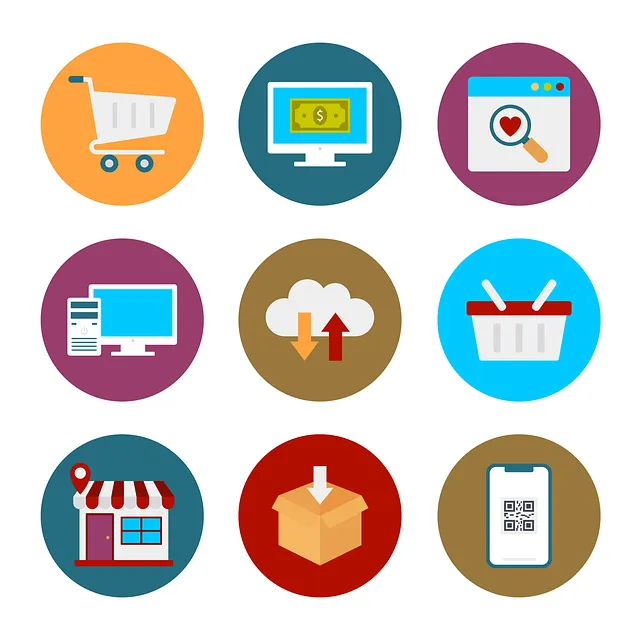In today's digital world, small business owners must go beyond customer data protection by prioritizing secure browsing activities, especially for whistleblowers and activists. Anonymizing browsers play a crucial role in protecting users' identities, enabling them to share sensitive information and organize protests safely. Small businesses can foster ethical conduct and encourage responsible reporting by providing access to robust anonymizing browsers like Tor. Additionally, adopting practices such as strong passwords, two-factor authentication, VPNs, and regular software updates is essential for enhancing online security and privacy, protecting both operations and customers from legal and privacy risks.
Small business entrepreneurs navigating the digital landscape must prioritize secure browsing to protect their operations and customers’ data. This article explores the growing need for enhanced online security, focusing on anonymizing browsers as a powerful tool for whistleblowers and activists. We delve into best practices for safe online activities and legal considerations, including privacy policies, to ensure small businesses thrive in an increasingly digital world while safeguarding sensitive information. Discover how these measures can safeguard your business from cyber threats and maintain customer trust.
- Understanding the Need for Secure Browsing for Small Business Entrepreneurs
- Anonymizing Browsers: A Tool for Whistleblowers and Activists
- Implementing Best Practices for Safe Online Activities
- Legal Considerations and Privacy Policies for Small Businesses
Understanding the Need for Secure Browsing for Small Business Entrepreneurs

In today’s digital landscape, small business entrepreneurs are increasingly reliant on online platforms for operations and growth. This heightened reliance makes securing browsing activities paramount. While many focus on protecting customer data, a crucial yet often overlooked aspect is ensuring the privacy and security of whistleblowers and activists who may use anonymizing browsers to share sensitive information. These individuals play a vital role in exposing unethical practices, which can be detrimental to businesses operating within questionable industries.
For small business owners, understanding this need is essential. It involves recognizing that secure browsing isn’t just about shielding personal data but also about fostering an environment where truth and transparency thrive. By adopting measures like providing access to robust anonymizing browsers, entrepreneurs can create a culture of ethical conduct and encourage responsible reporting within their circles.
Anonymizing Browsers: A Tool for Whistleblowers and Activists

Anonymizing browsers play a vital role in empowering whistleblowers and activists who need to protect their online identity while sharing sensitive information. These tools mask users’ IP addresses, making it difficult for third parties to track their browsing activity. This level of anonymity is crucial for individuals who might be at risk due to their political or social views, as it shields them from potential retaliation.
By using anonymizing browsers, activists can securely access and share documents, coordinate protests, and communicate without leaving digital footprints that could compromise their safety. It’s a powerful instrument in the digital age, fostering a sense of security and encouraging open dialogue, especially in repressive regimes or environments where free speech is curtailed.
Implementing Best Practices for Safe Online Activities

To ensure secure browsing, small business entrepreneurs should implement best practices for safe online activities. This includes using strong, unique passwords for every account and enabling two-factor authentication where possible. Regularly updating software and browsing applications is crucial to patch security vulnerabilities. Additionally, utilizing a Virtual Private Network (VPN) can encrypt internet traffic, providing anonymity and protecting against surveillance.
For those engaging in whistleblowing or activism, an anonymizing browser can be a powerful tool. These browsers, such as Tor, route internet traffic through multiple servers, making it difficult to trace online activities back to the user. This added layer of security is particularly important for individuals who may face retaliation for their actions and need to protect their digital footprint.
Legal Considerations and Privacy Policies for Small Businesses

Small businesses, especially those dealing with sensitive information, must prioritize secure browsing to protect their operations and customers. Legal considerations and privacy policies are integral aspects of this security framework. With an increasing focus on data privacy, entrepreneurs need to be mindful of how they handle customer data and ensure transparency through clear privacy policies.
For individuals like whistleblowers and activists who require anonymity while browsing, small businesses can play a vital role in providing secure tools such as anonymizing browsers. These tools encrypt user data and routes their internet activity through intermediary servers, ensuring online privacy and security. By implementing such measures, small businesses not only safeguard their own operations but also contribute to the broader digital rights and security of their customers and community members.
For small business entrepreneurs navigating the digital landscape, securing online activities is paramount. By understanding the importance of safe browsing, implementing best practices, and adopting tools like anonymizing browsers, which are invaluable for whistleblowers and activists, businesses can protect sensitive data, uphold privacy policies, and mitigate legal risks. This comprehensive approach ensures a secure digital environment, fostering growth and competitiveness in today’s online marketplace.
